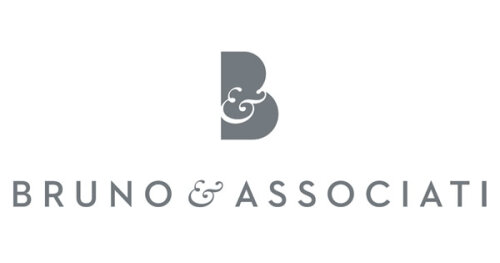Best Landlord & Tenant Lawyers in Milan
Share your needs with us, get contacted by law firms.
Free. Takes 2 min.
Free Guide to Hiring a Real Estate Lawyer
List of the best lawyers in Milan, Italy
About Landlord & Tenant Law in Milan, Italy
Landlord and tenant law in Milan, Italy, is governed by a combination of national legislation and specific local regulations. The primary legislation is the Italian Civil Code, supplemented by specific laws such as Law No. 431/1998, which regulates residential leases. These laws establish the rights and obligations of both landlords and tenants, ensuring fair and equitable arrangements for renting property. Milan, known for its vibrant real estate market, follows these national guidelines while also adapting to its unique urban requirements.
Why You May Need a Lawyer
Engaging a lawyer can be crucial in various situations concerning landlord and tenant relationships. Common scenarios include disputes over rental agreements, issues related to late payment or non-payment of rent, eviction processes, disagreements on property maintenance responsibilities, and renewal or termination of leases. Legal assistance may also be necessary for drafting or reviewing lease contracts to ensure compliance with both national and local laws and to protect the interests of the client. A lawyer can help navigate these complex situations by providing expert advice and representation.
Local Laws Overview
Key aspects of Milan’s local laws that pertain to landlord and tenant relationships include the terms of lease agreements, which can differ for residential and commercial properties. Law No. 431/1998 outlines terms for residential leases, including contract duration and rent revaluation processes. Rent increases are regulated and must adhere to specific criteria. Moreover, evictions are strictly regulated, requiring judicial intervention. Tenants have rights to a habitable dwelling, while landlords are obligated to maintain the property and respect privacy. The legal framework in Milan aims to balance the rights and responsibilities of both parties.
Frequently Asked Questions
What is the standard duration for a residential lease in Milan?
Typically, residential leases are signed for four years, renewable for another four years, under the "4+4" formula outlined by Law No. 431/1998.
Can a landlord increase the rent during the lease term?
Rent increases are generally tied to inflation indices and must comply with terms agreed upon in the lease and applicable law.
What are the tenant's rights regarding eviction in Milan?
Tenants have the right to receive formal notice and have eviction proceedings pass through judicial channels, which can provide opportunities for mediation or delay under certain conditions.
What must a landlord provide in terms of maintenance and repairs?
Landlords are responsible for ensuring the property is habitable and must undertake necessary repairs. However, tenants are generally responsible for small maintenance tasks.
How is a lease legally terminated before its expiration?
Early termination of a lease by a tenant usually requires a valid reason and appropriate notice, typically six months in advance unless otherwise specified in the lease agreement.
Are short-term rental agreements different from standard leases?
Yes, short-term rentals, often used for tourism or temporary stays, are regulated differently, and they often require adherence to distinct tax and registration obligations.
Is it necessary to register the lease agreement?
Yes, lease agreements must be registered with the Italian Revenue Agency within 30 days of signing to be legally valid.
Can landlords request security deposits?
Landlords can request a security deposit, which usually amounts to three months' rent, to cover potential damages or unpaid rent.
What should be included in a lease contract?
A lease contract should include details about the parties involved, the property, rental terms, payment specifics, rights and obligations, and any conditions for renewal or termination.
How can disputes between landlords and tenants be resolved?
Disputes can often be resolved through negotiation or mediation, but persistent issues may require legal action or resolution through the courts.
Additional Resources
Those seeking further assistance can contact the Italian Tenant Union (SUNIA) for tenant-related queries or the Italian Landlords' Association (CONFEDILIZIA) for landlord concerns. Legal aid can also be sought from local law firms specializing in real estate law. Additionally, the Municipality of Milan and the Italian Revenue Agency provide useful information and services related to property rentals.
Next Steps
If you require legal assistance concerning landlord and tenant issues in Milan, consider consulting with a lawyer who specializes in real estate law. Start by gathering all relevant documents related to your tenancy or lease agreement. Schedule a consultation to discuss your concerns, and come prepared with specific questions or details about your situation. Engaging a lawyer early can help you understand your legal rights and obligations and will provide you with the guidance necessary to address conflicts or secure favorable lease terms.
Lawzana helps you find the best lawyers and law firms in Milan through a curated and pre-screened list of qualified legal professionals. Our platform offers rankings and detailed profiles of attorneys and law firms, allowing you to compare based on practice areas, including Landlord & Tenant, experience, and client feedback.
Each profile includes a description of the firm's areas of practice, client reviews, team members and partners, year of establishment, spoken languages, office locations, contact information, social media presence, and any published articles or resources. Most firms on our platform speak English and are experienced in both local and international legal matters.
Get a quote from top-rated law firms in Milan, Italy — quickly, securely, and without unnecessary hassle.
Disclaimer:
The information provided on this page is for general informational purposes only and does not constitute legal advice. While we strive to ensure the accuracy and relevance of the content, legal information may change over time, and interpretations of the law can vary. You should always consult with a qualified legal professional for advice specific to your situation.
We disclaim all liability for actions taken or not taken based on the content of this page. If you believe any information is incorrect or outdated, please contact us, and we will review and update it where appropriate.














